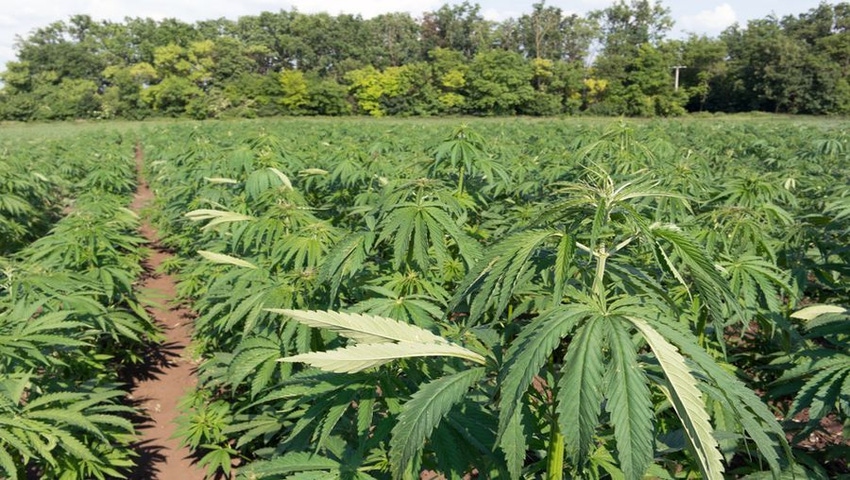Actions taken in May by the Bismarck Police Department against two retailers highlight the far-reaching implications of a marijuana extract rule adopted by the Drug Enforcement Administration.

Editor’s note:This is the fifth in a series of articles examining regulatory hurdles facing cannabidiol (CBD) producers and marketers in the dietary supplement industry, and ongoing efforts to comply with federal regulations. Click the following links for parts 1, 2, 3 and 4 of the series.
The owner of a health supplements store in the Northern Plains who was threatened with criminal prosecution if she restocks her shelves with cannabidiol (CBD) products said she is not willing to begin reselling the hemp-based substance.
But in interviews with reporters, Lonna Brooks of Terry’s Health Products has been willing to describe an encounter with local law enforcement in Bismarck, North Dakota, highlighting the far-reaching impact of a rule adopted by the Drug Enforcement Administration (DEA).
In May, after a local television station aired a special on the health benefits of CBD, detectives from the Bismarck Police Department purchased CBD products from two retailers, including Terry’s Health Products, to test them at a state crime laboratory. One of Brooks’ products tested positive for CBD, while the other returned a negative result, she said.
Brooks, who has owned the health supplements and specialty food store for five years, was advised CBD was a Schedule I. drug. A detective, Brooks explained, highlighted a “Marihuana Extract" rule in a packet of DEA materials distributed to her.
In a May 12 press release, the Bismarck Police Department said it did not seek charges “against the merchants since it appears that they were unaware that Cannabinol became a Schedule I. controlled substance in December of 2016." But Brooks said the police made it clear she would face criminal charges if she starting selling CBD again.
“Our police department has been very clear about the fact that if I try putting it back on the shelves, that they will prosecute me for selling a Schedule I. drug," she said in a phone interview in November.
Impact of ‘Marihuana Extract’ Rule
The police department’s action targeting Brooks’ CBD products highlights the far-reaching impacts of DEA’s marijuana extract rule, which is the subject of litigation in the U.S. Court of Appeals for the Ninth Circuit.
Lawyers with the Hoban Law Group who sued DEA on behalf of the Hemp Industries Association (HIA) and others said the agency overstepped its authority.
“If cannabinoids come from marijuana, they come from flowers of a non-exempt plant, then they’re illegal," Denver-based attorney Bob Hoban acknowledged in an in-person interview in January 2017 at his law office before he and his colleagues filed the complaint against DEA.
However, Hoban declared if cannabinoids come from other sources, including industrial hemp plants grown in compliance with the 2014 Farm Bill, they are not illegal under the Controlled Substances Act (CSA).
“We don’t think that there shouldn’t be a marijuana extract rule," Hoban said at the time. “We just think it should track the Controlled Substances Act, which is fundamental in my mind, but apparently not in terms of the process that’s taken place so far."
Brooks is among several individuals who signed declarations under penalty of perjury in the Ninth Circuit, discussing the adverse impacts of DEA’s rule on the hemp industry.
A panel of appeals court judges could hear oral arguments in HIA’s lawsuit against DEA as early as February 2018. According to the Ninth Circuit, most cases are decided within three months to one year of arguments.
In a declaration filed with the Ninth Circuit, Colleen Keahey, executive director of the HIA, said Customs and Border Patrol has seized hemp product shipments belonging to several of her members since DEA published its final rule.
Based on responses from businesses that responded to a survey, “HIA estimates that the projected 2017 revenues of the survey respondent businesses and the entire U.S. industry would have been tens, if not hundreds, of million dollars higher but for the publication of the final rule," Keahey wrote in her declaration.
CBD Products Tested
According to Brooks’ July 27, 2017 declaration, Terry’s Health Products sold hemp-derived products for about three years, averaging US$5,000 in monthly sales. But after a local TV station aired a May 2, 2017 feature story on the benefits of CBD oil, sales skyrocketed to $5,000 a week, she declared in the court filing.
The spike in CBD sales was short-lived. On May 11, narcotics investigators visited her store and a food cooperative. The investigators purchased products and had them tested.
During the police department’s confiscation of the hemp-derived products, Brooks said in her declaration, she was provided with documentation, including a copy of the publication of DEA’s marijuana extract rule in the Federal Register and its listing in the code of federal regulations (CFR).
“In fact, one of the … investigators drew an arrow next to the ‘Marihuana Extract’ listing in the CFR," Brooks declared.
“Terry’s no longer sells hemp-derived products out of fear of further seizure and potential criminal prosecution," Brooks wrote. She added, “The 100 [percent] loss of these hemp-derived product sales has had a substantial, negative impact on our small local business."
The Bismarck Police Department referred to cannabinol, a cannabinoid distinguishable from CBD. However, testing results of Brooks’ products by the crime laboratory division of the state Office of the Attorney General identified CBD in one of the bottles. There was “no evidence of controlled substances" in the other bottle tested, according to the results INSIDER obtained from Brooks. (Brooks said third-party documentation actually showed the presence of CBD in the latter product distributed by a North Dakota-based company, Zen Butterfly, contradicting the state lab's results of a negative finding; Zen Butterfly did not respond to a request for comment).
In the May 12 press release, local police reported one of two items purchased at Terry’s Health Products yielded a positive result for cannabinol, while all three items at the food coop were positive. The stores willingly turned over products for disposal after they were advised of the lab results, the authorities said, describing the merchants as "reputable businesses that had no intention of doing anything illegal."
Role of State, Federal Authorities Unclear
It’s not clear what prompted detectives to target the products. Brooks said she heard from multiple sources that a tip or direction came from North Dakota Attorney General Wayne Stenehjem based on a citizen complaint. The local newspaper shared a similar account; Sgt. Mike Bolme, a detective with the narcotics unit of the Bismarck Police Department, told the Bismarck Tribune in a May 12 article that its decision came after a tip from the attorney general’s office.
Asked to comment for this article, Sgt. Mark Buschena of the Bismarck Police Department referred questions to Stenehjem’s office whom he said determined CBD is a prohibited substance.
Reached via email, Stenehjem’s office said the issue involves DEA and referred a media inquiry to the U.S. Attorney’s Office. Tanya Abraham, a public information officer with the U.S. Attorney’s Office in Fargo, North Dakota, declined comment.
Patrick Goggin, a senior attorney with the Hoban Law Group, said the case involving Brooks is one in which authorities in North Dakota gave “real deference to the big kahuna agency of the DEA.
“And who knows exactly what communication was made from the DEA to the local and state authorities in North Dakota, but it’s clear that there had to have been some communication to them by the DEA," the San Francisco-based lawyer said in a brief phone interview. “Or why would they be pursuing and enforcing a rule that by the local law enforcement’s own accounts was low priority, and they didn’t understand it?"
Brooks said information was shared with the local police, explaining the CBD seized was hemp legally sourced from Kentucky.
“It didn’t matter to them," she said. “They didn’t care. The police department said this is our direction from the attorney general."
As a wife and mother of a two-year-old, Brooks said she won’t do anything to jeopardize her family—so Bismarck residents aren’t likely to find CBD at her store anytime soon. However, the business owner feels she has an obligation to openly discuss the controversial issue.
“[T]he natural products industry has fought against different FDA and DEA things from the inception, and I kind of feel like it’s my mission," she said. “I need to be speaking up, or I need to be doing something."
About the Author(s)
You May Also Like






.png?width=800&auto=webp&quality=80&disable=upscale)